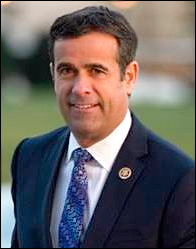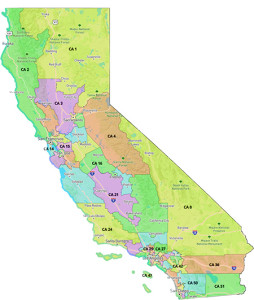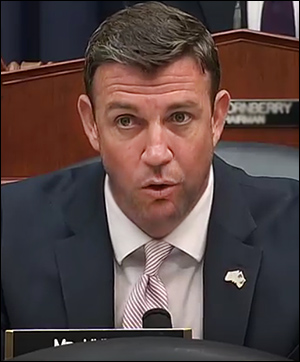By Jim Ellis
May 26, 2020 — US Rep. John Ratcliffe (R-Heath/Rockwall) of Texas, just confirmed as the country’s new Director of National Intelligence, has already resigned from the House meaning that the state’s 4th Congressional District will now be open for the general election.Almost as quickly as Rep. Ratcliffe’s post-confirmation resignation occurred, Texas Gov. Greg Abbott (R) announced that he will not call a special election to fill the balance of the term. Therefore, the 4th District seat will remain vacant until the next Congress convenes in January. This is the third seat that won’t be filled this year, and it joins CA-50 (Rep. Duncan Hunter’s resignation) and NC-11 (Rep. Mark Meadows resignation) as incumbent-less seats until 2021. All three districts are safe or likely Republican.
Since the Texas primary was held on March 3 and Rep. Ratcliffe was re-nominated with majority support, the CD-4 congressional race will not advance to a July 14 runoff election. Therefore, the district’s Republican Executive Committee will convene on Aug. 8, according to Texas Republican Party chairman James Dickey, in order for the members to choose the party’s general election replacement nominee.
Because TX-4 is a safe Republican seat (Trump ’16: 75-22 percent — Ratcliffe ’18: 76-23 percent), this committee will almost assuredly be choosing the next congressman. And the eventual GOP nominee who emerges from the committee replacement process will have one of the easiest paths into the US House of any new member.
A large field of prospective office holders will declare their candidacies. Already announced are Rockwall City Councilman Trace Johannesen, retired Navy SEAL Floyd McLendon, Navy veteran T.C. Manning, and attorney Jason Ross. McLendon has already been on the ballot this year. He lost the 32nd District congressional Republican primary on March 3 to businesswoman Genevieve Collins who is now challenging freshman Rep. Colin Allred (D-Dallas).
Texas’ 4th District begins in the far eastern suburbs of Dallas, and then stretches all the way to Arkansas and along the Red River that forms the Texas-Oklahoma border. In between the cities of Rockwall and Heath in the southwest the district roams to Texarkana located in Texas’ far northeast corner. Along the way, small towns with well-known names appear, such as Atlanta, Naples, Paris, Pittsburg, and New Boston.





